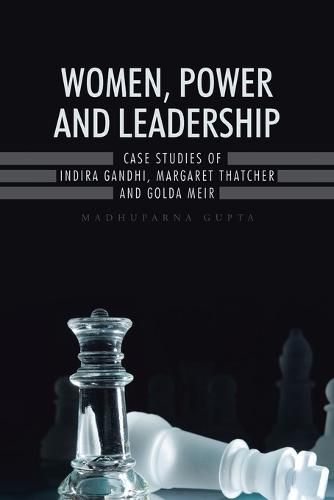Readings Newsletter
Become a Readings Member to make your shopping experience even easier.
Sign in or sign up for free!
You’re not far away from qualifying for FREE standard shipping within Australia
You’ve qualified for FREE standard shipping within Australia
The cart is loading…






This title is printed to order. This book may have been self-published. If so, we cannot guarantee the quality of the content. In the main most books will have gone through the editing process however some may not. We therefore suggest that you be aware of this before ordering this book. If in doubt check either the author or publisher’s details as we are unable to accept any returns unless they are faulty. Please contact us if you have any questions.
The author is an Assistant Professor of Political Science at Chandernagore Government College, West Bengal, India. She received her Ph.D. in International Relations from Jadavpur University in 2014 and is a Gold medallist in her M.A. programme from the same university. She has also served as an instructor of German language at the Ramakrishna Mission Institute of Culture, Kolkata and translated several English and Bengali texts and songs into German language. Her areas of interest include: international politics, defence and strategic studies, comparative politics and international law. Since the Second World War, there have been very few women politicians to have come to lead their nations and dominate the world politics. Out of them, Indira Gandhi, Margaret Thatcher and Golda Meir are regarded as powerful women leaders of the world. These three Premiers were the first and only women leaders to have assumed political leadership in their respective countries till date. They were universally recognised as ‘Iron Ladies’ because of their command and control over their respective governments, their ‘conviction’ mindset and their capability to transform and implement their visions and ideas into practical policies. They were surrounded by male colleagues and there was hardly any woman in their respective Cabinets or governments; nor did they portray themselves as representatives of womenfolk. Also, their policies bore no reflection of women-friendly approaches; neither were they supporters of women’s rights, nor did they encourage women’s participation in politics or promote women’s empowerment. They were successful in maintaining domestic peace and resisted external aggressions with strong hands, for which, they were universally recognised as tough leaders and were personified with their respective countries as well. This book intends to look at their electoral politics, modes of functioning and the power-sharing patterns, makes a comparative study of the nature of their leadership, along with the personal and institutional factors in their access to power, mitigating domestic discontents as well as their individual roles in the Indo Pak War of 1971, the Falklands Island dispute of 1982 and the Yom Kippur War of 1973.
$9.00 standard shipping within Australia
FREE standard shipping within Australia for orders over $100.00
Express & International shipping calculated at checkout
This title is printed to order. This book may have been self-published. If so, we cannot guarantee the quality of the content. In the main most books will have gone through the editing process however some may not. We therefore suggest that you be aware of this before ordering this book. If in doubt check either the author or publisher’s details as we are unable to accept any returns unless they are faulty. Please contact us if you have any questions.
The author is an Assistant Professor of Political Science at Chandernagore Government College, West Bengal, India. She received her Ph.D. in International Relations from Jadavpur University in 2014 and is a Gold medallist in her M.A. programme from the same university. She has also served as an instructor of German language at the Ramakrishna Mission Institute of Culture, Kolkata and translated several English and Bengali texts and songs into German language. Her areas of interest include: international politics, defence and strategic studies, comparative politics and international law. Since the Second World War, there have been very few women politicians to have come to lead their nations and dominate the world politics. Out of them, Indira Gandhi, Margaret Thatcher and Golda Meir are regarded as powerful women leaders of the world. These three Premiers were the first and only women leaders to have assumed political leadership in their respective countries till date. They were universally recognised as ‘Iron Ladies’ because of their command and control over their respective governments, their ‘conviction’ mindset and their capability to transform and implement their visions and ideas into practical policies. They were surrounded by male colleagues and there was hardly any woman in their respective Cabinets or governments; nor did they portray themselves as representatives of womenfolk. Also, their policies bore no reflection of women-friendly approaches; neither were they supporters of women’s rights, nor did they encourage women’s participation in politics or promote women’s empowerment. They were successful in maintaining domestic peace and resisted external aggressions with strong hands, for which, they were universally recognised as tough leaders and were personified with their respective countries as well. This book intends to look at their electoral politics, modes of functioning and the power-sharing patterns, makes a comparative study of the nature of their leadership, along with the personal and institutional factors in their access to power, mitigating domestic discontents as well as their individual roles in the Indo Pak War of 1971, the Falklands Island dispute of 1982 and the Yom Kippur War of 1973.